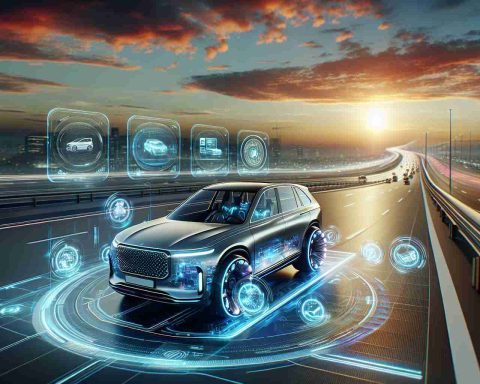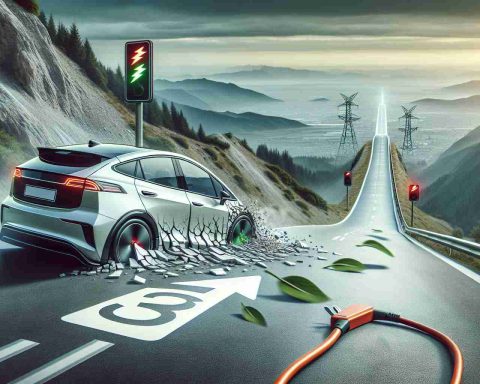Honda is not just a car company. Known for their innovation, the brand is venturing into uncharted territory—leveraging artificial intelligence (AI) and robotics to redefine mobility. This isn’t about making cars faster or more fuel-efficient; it’s about transforming how transportation integrates with our lives.
Enter the era of Honda’s eVTOLs. Electric Vertical Take-Off and Landing vehicles are no longer the stuff of science fiction. Honda has announced they’re exploring eVTOL technology, aiming for a future where urban air mobility becomes a reality. These aerial vehicles intend to make commuting faster while reducing congestion on traditional roads.
AI takes the driver’s seat. Beyond flying vehicles, Honda’s AI initiatives are pushing the envelope in personal vehicle autonomy. Using advanced machine learning algorithms, Honda aims to create cars that not only drive themselves but learn and adapt to the unique driving habits of their owners. This personalized autonomy promises enhanced safety and a seamless user experience.
Robotics reimagined. With a significant investment in robotics, Honda is developing service robots for the elderly and people with disabilities. These robots are designed to assist with daily activities, promoting independence and improving quality of life.
In summary, Honda is not just looking at the next year or decade—they’re envisioning the next century of mobility technology. By integrating AI, robotics, and aerial transport, Honda continues to challenge the limits of what’s possible, promising a future where mobility is smarter, faster, and more accessible for everyone.
Honda Revolutionizes Mobility: A Glimpse into the Future
In today’s world, innovation is the key to staying ahead, and Honda is taking bold steps to redefine mobility as we know it. This article delves into Honda’s latest ventures that focus on groundbreaking technologies—artificial intelligence (AI), robotics, and electric vertical take-off and landing vehicles (eVTOLs)—that are setting new trends in transportation.
The Rise of eVTOLs: Airborne Urban Commutes
Honda is spearheading the development of eVTOLs, an emerging technology that aims to revolutionize urban mobility. These electric flying vehicles promise to offer a rapid and eco-friendly alternative to traditional commuting, alleviating road congestion and reducing carbon emissions. The move towards urban air mobility is expected to open unforeseen economic and social opportunities. Honda’s commitment to this technology underscores its vision for a cleaner, faster, and more efficient transportation network.
Artificial Intelligence: Personalized Autonomy in Vehicles
Honda’s foray into AI isn’t just about self-driving cars; it’s about creating a personalized driving experience. With cutting-edge machine learning models, Honda’s vehicles are set to understand and adapt to the user’s driving behaviors over time. This approach presents a new dimension in vehicle safety and enhances the user experience by prioritizing comfort and convenience for the driver. The potential for AI-driven vehicles to reduce accidents and improve traffic flow remains a compelling factor for Honda’s continuing research in this domain.
Pioneering Robotics for Elderly Care
Recognizing the challenges faced by the aging population, Honda is investing heavily in robotics to support the elderly and individuals with disabilities. These service robots are being designed with the aim of assisting in everyday tasks, thereby promoting independence and improving quality of life. Such innovations reflect Honda’s commitment to addressing societal needs through technology, paving the way for more compassionate and intelligent solutions in elder care.
Market Trends and Innovations
The integration of AI, eVTOLs, and robotics positions Honda at the forefront of mobility trends expected in the coming decades. Analysts predict that the market demand for AI-driven vehicles and urban air mobility solutions will grow considerably, driven by population growth and urbanization. Honda’s proactive steps towards these innovations not only strengthen their market position but also contribute significantly to shaping the future of sustainable transportation solutions globally.
Challenges and Prospects
While Honda’s ambitious projects are promising, they also come with challenges. Regulatory hurdles, public acceptance, and the need for robust infrastructure are significant barriers to widespread adoption of eVTOLs and autonomous vehicles. However, Honda’s ongoing collaborations with tech companies and regulatory bodies are crucial in overcoming these obstacles, ensuring a seamless transition towards these future technologies.
In conclusion, Honda’s bold moves in AI, robotics, and urban air mobility are set to push the boundaries of what’s possible in transportation. Their innovations underscore a commitment to not just adapting to the times, but actively shaping the future landscapes of mobility, sustainability, and convenience.









